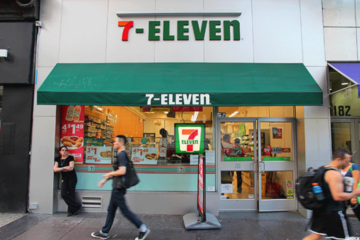The home improvement sector has struggled with financial distress this year, leading iconic retail chains to file for bankruptcy and close stores, or in one case, just close all stores and not file bankruptcy.
Historic paint retailer Kelly-Moore Paints in January 2024 shut down all 157 of its retail locations and furloughed about 700 employees in an out-of-court wind-down of all of its business operations.
Don’t miss the move: Subscribe to TheStreet’s free daily newsletter
The Irving, Texas company, which was founded in 1946, cited a heavy financial burden of paying off about $600 million in asbestos claims settlements, the risk of millions of dollars in future asbestos claims, and its inability to invest in solutions to solve longtime supply chain issues that worsened during the Covid-19 pandemic for its decision to close down.
Kelly-Moore did not file a Chapter 11 bankruptcy reorganization or Chapter 7 liquidation, since it did not have the capital to fund its continued operations.
Related: Another popular Asian dining chain files Chapter 11 bankruptcy
Home improvement retailer LL Flooring on Aug. 11 filed for Chapter 11 bankruptcy protection in the U.S. Bankruptcy Court for the District of Delaware in Wilmington seeking a sale of its assets, after suffering from broad headwinds in the housing, repair, and remodeling markets that occurred when the Covid-19 pandemic subsided, court papers said.
LL Flooring agreed to a sale of its assets and distribution center to a subsidiary of private equity firm F9 Investments for a purchase price including a $1 million fixed amount, an inventory price of 57% of landed cost value of acquired inventory, and assumed cure costs.
F9 acquired 219 stores and agreed to employ up to 1,000 workers, but the debtor still closed about 211 stores.
F9’s subsidiary F9 Brands on Sept. 5 reached an agreement with the debtors, the official committee of unsecured creditors, and the debtor-in-possession asset-based loan lenders on an asset purchase agreement and filed the agreement in the District of Delaware on Sept. 6.
One major company that serves the home improvement market has filed for bankruptcy, but its filing won’t lead to any store closings in bankruptcy.
True Value Co. filed for Chapter 11 bankruptcy to sell its assets.
Shutterstock
True Value Co. files for Chapter 11 bankruptcy
Home Depot’s rival True Value Co. and seven affiliates, which provide wholesale hardline products to 4,500 independently owned retailers, filed for Chapter 11 bankruptcy protection on Oct. 14 and seek to sell their assets to hardware, lumber, and building materials cooperative Do it Best Corp.
Related: Another iconic auto parts brand files for Chapter 11 bankruptcy
Independently owned and operated True Value hardware stores are not a part of the Chapter 11 proceedings, according to a statement from the debtor.
More bankruptcy stories:
Popular fast-food chain shuts locations, no bankruptcy plans yetIconic retail food company closing down, no bankruptcy filing yetBankruptcy filing can’t rescue popular retail food brand
True Value reached a prepetition stalking-horse agreement that calls for Do it Best to acquire the hardline wholesaler’s assets for $153 million cash; assume certain liabilities, including up to $45 million in trade payables; and offer employment to certain of the debtor’s employees.
The debtor seeks to complete the sale by the end of the year.
“After a thorough evaluation of strategic alternatives, we determined that the sale of our business was the path forward to maximize value and best serve our retail partners and other stakeholders into the future,” True Value’s CEO Chris Kempa said in a statement.
“We believe that entering the process with an agreed offer from Do it Best, who has a similar decades-long history in the home improvement space and also operates with a focus on supporting members and helping them grow, is the most beneficial next step for True Value and our associates, customers, and vendor partners. We thank these valued stakeholders for their continued loyalty as we work to secure a stronger future for True Value,” Kempa said.
The debtor will also seek approval of $15.3 million in priming superpriority debtor-in-possession financing to finance the company’s Chapter 11 case, according to the petition.
The Chicago-based debtor, which has operated for over 75 years, listed $100 million to $500 million in assets and $500 million to $1 billion in liabilities in its petition filed in the U.S. Bankruptcy Court for the District of Delaware.
True Value’s largest unsecured creditors include Stihl Inc., owed $10.5 million; Hillman Group, owed $7.3 million; and Rpm International, owed $6.4 million.
Related: Veteran fund manager sees world of pain coming for stocks


